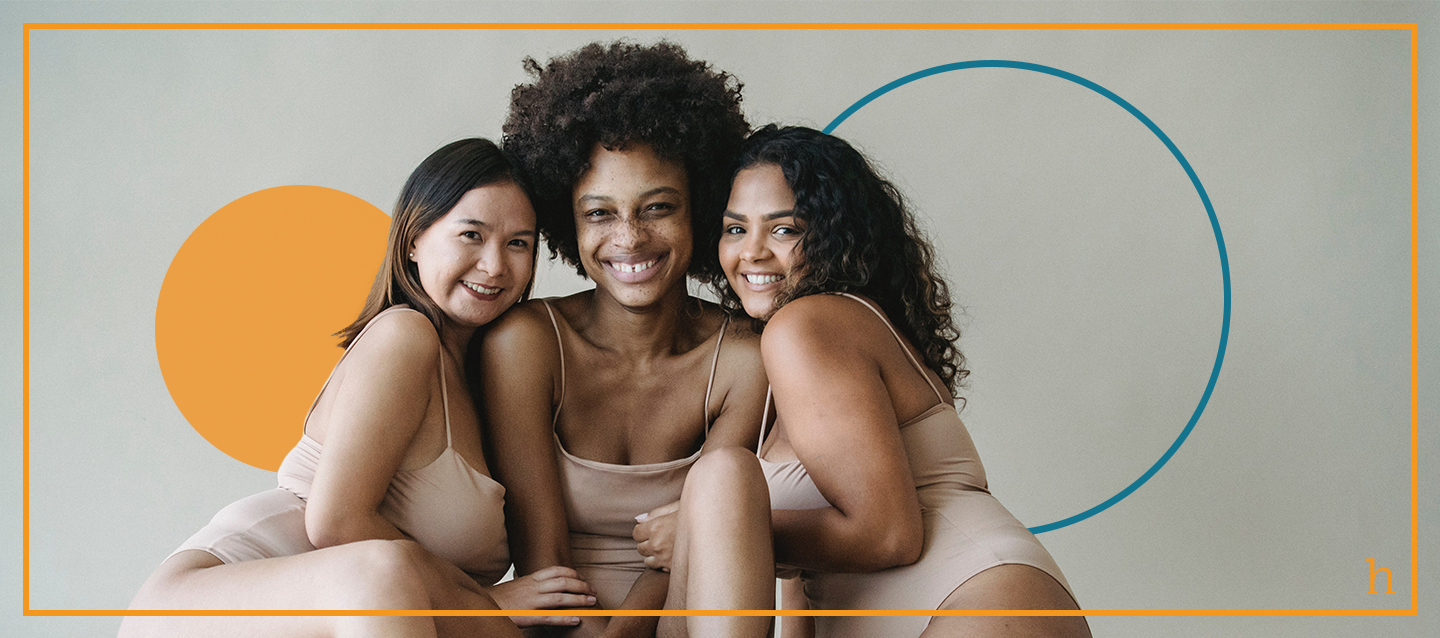Thawing out from almost a year and a half of “The New Normal,” excitement and apprehension about the return to face-to-face socialization is prevalent. A common refrain I hear from my clients is that they are afraid to see people due to weight gain or other bodily changes that transpired over the course of the pandemic. So, there is a foundation of unique pandemic-induced social anxiety layered on top of society’s pre-existing expectations around “summer bodies.”
Let’s get one thing straight before I go any further: Every. Body. Is. A. Summer. Body. There is nothing you need to do to “get” one. Full stop. Notice whatever reactions you might be having to that sentiment.
Keep in mind, I am not asking you to love your body. Striving for that relationship with your body can often feel forced and inauthentic. Instead, it can be helpful to shift your focus to cultivating a sense of neutrality around your body. The concept of body neutrality essentially calls for you to accept your body as your home while walking this Earth. It inherently calls upon people to refocus inwardly, which can feel intimidating at times. Hating your body can feel safer in its familiarity, but do not mistake that for comfort.
To boost your body image, experiment with the following:
- Anchor into gratitude for your body. While there is a tendency to focus on ways in which bodies have betrayed us, it is truly quite amazing to stop and consider all that our bodies do for us on a moment-to-moment basis. Are you breathing without medical interventions? Are you able to hear and appreciate music? Were you able to walk around today? Try writing out at least 3 things your body has done for you today.
- Develop compassion for your body. Sometimes it can be hard to feel gratitude, and that is okay! Is your body feeling achy or stiff today? Are you bloated? Are you feeling uncomfortable in your clothes? Try engaging with your body as though it is a friend in need of your support. Would you shame someone else coming to you with their discomfort or self-judgments? You would likely provide them with some perspective and reassurance of their worth.
- Cultivate a social media feed that makes you feel good about yourself rather than reinforcing insecurities. Seek out a diverse array of “influencers” who represent a wide spectrum of body types. “Fitspo” and other “wellness” accounts are sneaky, so be a critical consumer of your media sources. Do you admire how they talk about their body or food? Do their messages align with your healthy self? Or do you feel worse about yourself after seeing their posts? Are unhelpful, unhealthy, unrealistic expectations being perpetuated?
- When taking pictures, consider the purpose. Aim to capture memories rather than performances, and experiment with not looking at photos until later. When judging images, consider the following: when you look at a sunset, you do not question its beauty. If you attempt to capture it in a photo, it often looks different than the image that is in front of you. Do you then hurl criticism and contempt at the sunset? Does its beauty diminish? No. Chances are, if anything, you are a bit frustrated that your camera is not capturing the beauty that you know exists. Practice viewing images of yourself in the same way.
- Remember that everyone is the main character of their own story. If you are worried about how you look in a bathing suit, it can be helpful to keep in mind that others around you are likely preoccupied with themselves in a similar way. Check-in with yourself around the ways in which you do (or do not) judge others disparagingly. If you find yourself judging others often, you might be projecting some of your thoughts onto others. Get curious about this! If that has been your experience, it does not make you a bad person. It simply means you are human, and you have likely internalized societal fat-phobia.
- Know that numbers on the scale and BMI do not capture useful health information for most people. Blood pressure, cholesterol, resting heart rate, etc. are more meaningful measures of health. To contextualize the absurdity of BMI scales: muscular people with next to no body fat are often categorized as obese! But, putting that aside, perhaps most importantly: focus on BMI and numeric weight illuminates engrained cultural biases, as having an underweight BMI is actually associated with more significant health consequences than an overweight BMI. So, is it really health we are concerned about? Or is it just easier to pretend it is about health rather than acknowledging the insidiousness of fat-phobia? Fat is not bad. Fat is not a moral issue. Why do we act like it is?
- Step away from focusing on the physical and explore traits you like about your inner self. Perhaps it is your assertiveness, your humor, your time management skills, your intellect… I think you get the gist! While some find it uncomfortable to deliberately focus on their strengths, try allowing yourself to bask unapologetically in the presence of these traits without judgment.
Experimenting to find what makes you feel best on any given day is a process, but it is worth every step!
What are you willing to explore today?

